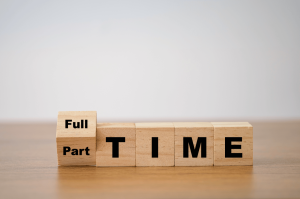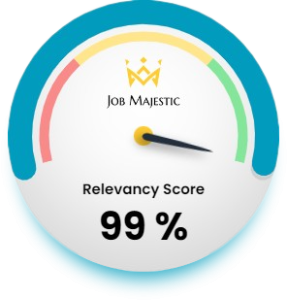Physical interviews still have a great significance in recruitment processes in this competitive world of job placement. In contrast to any virtual or telephonic interview, in face-to-face interviewing, it can present the employer with an opportunity to assess the applicant in person, not only based on qualification but also for personality, body language, and demeanor. This will probably mean a high level of pressure; still, with good preparation and the right approach, you will surely ace your physical interview and probably get the job.
On the whole, physical interviews are an art that requires one to do some homework on preparations, presentation confidence, and effective communication. This article tries to put you through the best tips on how to ace a face-to-face interview and make an indelible mark in the mind of your probable employer.
1. Do Your Homework About the Company Inside Out
Homework done on any company under question is the bedrock for any interview, let alone a physical one. It just shows not only your interest, but also shows enthusiasm and shapes up answers based on the values and mission of that specific company.
Look for their corporate website for an idea about the company’s products and services, history, core values, and recent news pertaining to new products, partnerships, or other achievements. Look for their social media to learn more about the culture and public image of the company.
Also, know the job you are applying for and let your skills relate to the position. Reread and know the major responsibilities included in the job description. In that way, you will be capable of telling how you will help the company to be successful.
2. Dress Professional, Dress Appropriately
Your dress is the first point of contact in a physical interview. Dressing properly shows that respect will be accorded to the interviewer, but it will also make you confident and professional. The way you dress says much about your seriousness regarding the opportunity. You need to know the company culture.
The type of job that you are applying for and the culture of the company determines what you will wear. Business formal for corporate positions, such as those dealing with finance, law, or consultancy: for men, a fitted suit, white shirt, and formal shoes; women would be wearing a business dress or blouse and suit with either a skirt or trousers. Business casual would be ample in creative or casual industries. That could be a smart-looking blazer with some nice trousers or just a button-up shirt. Whatever your preference is, just make sure the clothes are washed, fitting well, and ironed. Also, avoid casual wear, such as jeans or sneakers, unless the company advises that their corporate culture is generally casual.

3. Be Punctual and Plan Your Journey
It is among those simple things, but very important for displaying professionalism. Lateness in attending a physical interview may show bad time management on your part and also disregard for the time of the interviewer. Arrive at least 10 to 15 minutes before the appointed time to get a chance to sit down, gather your thoughts, and get yourself psychologically ready for the interview.
Plan Ahead
Plan your route in advance to arrive just on time. If you’re not familiar with the location, do a trial run so you will know how much time it takes you to get there. Check your GPS or any public transport apps to ensure no delays or disruptions are expected on the day of your interview. If you are unsure of the address, call in and find this out in advance, or look on a map so that you don’t get lost.
Bring Necessary Documents
Bring with you a number of copies of your resume, references, and any other documents that may have been requested by the employer. It is always good to have extra; this shows you are prepared. If you have a portfolio of your work or certifications related to the job, don’t forget to bring them along.
4. Mind Your Body Language
Your body language says volumes at a physical interview. Non-verbal gestures of your posture, gesticulation, and eye-to-eye contact will make or break the deal to leave a nice impression.
When you sit down to be interviewed, always sit up straight. This will help to show that you are engaged in the conversation and feel confident about yourself. Of course, do not slouch or lean back into the chair because this will make you look as though you do not care or are uninterested in anything.
Eye Contact
Connect with your interviewer through appropriate eye contact. It speaks volumes of your confidence, integrity, and responsiveness. Never glare at the interviewer; that is a sign of aggression. Steady eye contact during speech or while listening helps in connecting with the person and showing interest in the discussion.
Avoid Nervous Habits
Avoid fidgeting, tapping of feet, or playing with hair because it might irritate the interviewer. These actions will give the impression that you are either anxious or inattentive. Instead, be relaxed and composed so that you can better focus on the conversation and be in a better position to respond to the questions.
5. Communicate Clearly and Effectively
The key to any successful interview is effective communication. It’s about demonstrating the capability to convey your message very clearly, concisely, and confidently. Answer questions in a thoughtful, organized, and direct manner.
Answer Questions with Confidence
If there is any question regarding your qualification or experience, then answer it confidently but not overconfident. Always draw examples from the previous held positions on skills and abilities. Use the STAR method: Situation, Task, Action, Result. In such a way, you will be capable of giving clear responses in an organized manner highlighting your achievements.
Avoid One-Word Responses
While conciseness is important, expanding your answers equitably helps. Avoid direct “yes” and “no” responses; that does not allow the interviewer to elicit much of your capabilities. Give elaborate examples of your previous work and how those will help you deliver the best results in the position under application.
Listen Actively
Listen as much as you speak in an interview. Make sure you listen well to each question before answering. In the case you do not understand a question, don’t be shy to ask for explanations. Well-articulated responses to any questions denote that a person is listening and interested in the other person speaking.
6. Be Prepared to Discuss About Your Strengths and Weaknesses
A common question in interviews is, “What are your strengths and weaknesses?” While this can seem tricky, it’s a good opportunity to showcase your self-awareness, skills and personal growth.
Highlight Your Strengths
Discuss strengths that are relevant to the role and provide examples of how you’ve successfully demonstrated those strengths in previous jobs. Focus on qualities like problem-solving skills, communication, leadership, or teamwork, depending on what the role requires.
Address Your Weaknesses Honestly
And when it does come time to talk about weaknesses, answer truthfully but tactfully. Never brush off the question with a fake answer like, “I’m a perfectionist.” Name one of your real weaknesses that you’ve actively improved. For example, you can say, “I used to struggle with public speaking, but I’ve taken steps to get better through taking workshops in public speaking and volunteering for presentations at my previous job.”

7. Ask Insightful Questions
Smart questions at the end of your interview can actually show interest in both the job opportunity and the company itself. Do not ask about salary, benefits, or time off, let the interviewer bring those things up first.
Instead, ask those things which reveal your interest in their values of the company, growth opportunities, and work culture. Examples of this might include: “What are the biggest challenges facing the company, and how can I help to overcome them?” or “What does success look like for this position?”
8. Follow Up After the Interview
One of the easiest things you can do, is to show your appreciation for an opportunity and let them know how interested you are in the position, is to send an interview thank-you note. You want to thank the interviewer for his or her time, briefly mention something important that you took away from the interview, and reiterate your interest in the position.
A nicely written thank-you note can make a lasting impression on the employer and stick you in their minds for good.

Conclusion
Physical interviews mean preparation for hiring, confidence, and effective communication. Studying the company, dressing properly, maintaining good body language, and clearly stating your strengths and experiences will leave a mark in the mind of your interviewer. Also, it shows professionalism and interest in a position if one follows up after an interview with a thank-you note.
Though these may take some practice to get just right, the efforts put in will be totally worth it. Bottom line: Good luck with that next interview. Just being prepared in mind and confidently walking in and engaging with your interviewer will take you a step toward that dream job.
![]()






